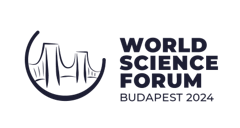Programme / Plenary session I – TRUST IN SCIENCE – Conceptualizing Trust in Science
‹ back to Programme listerDay
Thursday / 21 NOV
9:00 - 10:30
The session Conceptualizing Trust in Science aims to put trust in science into context through the exploration of key themes such as capacity building, public understanding and accountability. Discussions will navigate the complexities of trust in an evolving world, offering insights and actionable steps for diverse societal actors to strengthen trust in science. They will explore the wider range of factors and stakeholders that play a role in influencing the level of uptake of science, to enhance evidence-informed decision-making and behavior, enabling more effective actions when tackling global challenges.
Research reveals a nuanced landscape of trust in science globally. Whereas some highlight the damaging effects of the proliferation of disinformation and misinformation, exacerbated by social media and artificial intelligence, others contrastingly indicate high or increasing levels of trust in science internationally. The situation also varies across countries, disciplines and topics. As we face global transformations and challenges, trust in science does appear to influence the uptake of science, but is just one of multiple such factors. This is supported by the findings of the International Science Council's recent report, "The Contextualization Deficit: Reframing Trust in Science for Multilateral Policy," which, in addition to recognizing the need to promote trust in science, emphasizes the need to understand the contextual intricacies shaping the adoption and acceptance of science by societal and policy actors.
An important aspect of this contextualization exercise is the issue of ‘values’ and the creation of an enabling environment for trust in science. The study notes the need to recognize and address the differing values of publics and stakeholders involved in multilateral problems and policy-making. In this regard, the systematic application of the universal values of human rights – and the emphasis on freedom of scientific research, the right to scientific advancement and its benefits, inclusion and non-discrimination, transparency and accountability – can provide solid guidance in situations of real or perceived clash.
Summary of the session by session rapporteur Dr Márton Kolossváry, Head of Department of Education and Research, Gottsegen National Cardiovascular Center:
At the plenary session entitled “Trust in Science” (plenary session I), speakers took as a starting point for their discussion the tenet that trust is needed for science to have an effect on our societies. As Sudip Parikh, CEO of the American Association for the Advancement of Science (AAAS) pointed out, the scientific profession has one of the highest trust indexes among all professions. Even though this has gone from 80% to 70% during the COVID pandemic in the US, it has rebounded since then. While politics polarizes our societies, the trust in science needs to be universal among all levels of our communities.
Tamara Elzein, Secretary General of the National Council for Scientific Research of Lebanon, emphasized in her keynote address that in order to increase trust further and to counter misinformation, we need an effective educational system equipping citizens with the necessary knowledge to understand scientific findings. Further, the scientific community needs to regain focus and at the same time it needs to bring science closer to society. This can be done by conducting research that aims to foster humanity and bring greater good to all. However, the current trend of commercialization of scientific research has led to science focusing on research bringing financial gains. What is more, the tyranny of metrics when it comes to the evaluation of scientific impact further misguides researchers, turning them into machines of publishing.
As Lisa Herzog, Dean of the University of Groningen, pointed out, all researchers start their careers driven by idealism. They want to make a difference, enjoy the outreach and collaborative activities involving research. We need to foster these intentions rather than increasing the pressure on them. Furthermore, we need to find ways in which those taking an active part in training the new generation are acknowledged for their efforts in helping young researchers nurture their genuine and pure intentions.
Panelists agreed on the need to build structures which enforce the perpetual usefulness of science. We need to provide frameworks that support scientific research which aims to increase the good of all humankind and use it for creation rather than destruction.
Moderator:
Keynote:
Speakers:
- Takaaki Kajita, Distinguished University Professor, Nobel Laureate in Physics, Institute for Cosmic Ray Research of the University of Tokyo
- Lisa Herzog, Dean, University of Groningen, Faculty of Philosophy
- Elisa Reis, Member, Brazilian Academy of Sciences, and International Panel on Social Progress
- Maria Leptin, President, European Research Council
Rapporteur:
Video:
Photo:
https://www.flickr.com/photos/mtasajto/albums/72177720322092698/
PPT Links:
Tamara Elzein: https://shorter.me/8C509
Takaaki Kajita: https://shorter.me/q9rfX
Lisa Herzog: https://shorter.me/b3pGx
